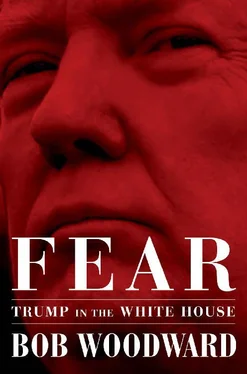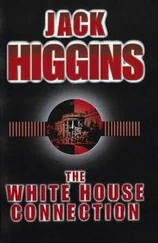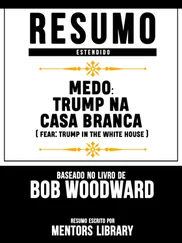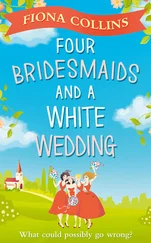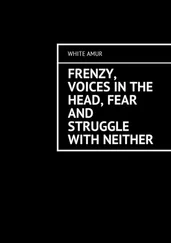Bob Woodward - Fear - Trump in the White House
Здесь есть возможность читать онлайн «Bob Woodward - Fear - Trump in the White House» весь текст электронной книги совершенно бесплатно (целиком полную версию без сокращений). В некоторых случаях можно слушать аудио, скачать через торрент в формате fb2 и присутствует краткое содержание. Город: New York, Год выпуска: 2018, ISBN: 2018, Издательство: Simon & Schuster, Жанр: Публицистика, Политика, на английском языке. Описание произведения, (предисловие) а так же отзывы посетителей доступны на портале библиотеки ЛибКат.
- Название:Fear: Trump in the White House
- Автор:
- Издательство:Simon & Schuster
- Жанр:
- Год:2018
- Город:New York
- ISBN:978-1-5011-7551-0
- Рейтинг книги:3 / 5. Голосов: 1
-
Избранное:Добавить в избранное
- Отзывы:
-
Ваша оценка:
- 60
- 1
- 2
- 3
- 4
- 5
Fear: Trump in the White House: краткое содержание, описание и аннотация
Предлагаем к чтению аннотацию, описание, краткое содержание или предисловие (зависит от того, что написал сам автор книги «Fear: Trump in the White House»). Если вы не нашли необходимую информацию о книге — напишите в комментариях, мы постараемся отыскать её.
Fear: Trump in the White House — читать онлайн бесплатно полную книгу (весь текст) целиком
Ниже представлен текст книги, разбитый по страницам. Система сохранения места последней прочитанной страницы, позволяет с удобством читать онлайн бесплатно книгу «Fear: Trump in the White House», без необходимости каждый раз заново искать на чём Вы остановились. Поставьте закладку, и сможете в любой момент перейти на страницу, на которой закончили чтение.
Интервал:
Закладка:
“And you’d have these women who’d say, you know, I’m pro-choice… but I don’t think Roe v. Wade is going to change. But I don’t understand why we can’t afford everyday life anymore, so I’m voting on that.”
Much of the media did not buy “the hidden Trump voter” line. But Priebus and Walsh’s database gave the RNC and the campaign insight into almost everything about every likely voter—what beer they drank, the make and color of the car they drove, the age and school of their kids, their mortgage status, the cigarettes they smoked. Did they get a hunting license every year? Did they subscribe to gun magazines, or liberal magazines like The New Republic ?
And Conway said, “There’s not a single hidden Hillary voter in the entire country. They’re all out and about.”
About Clinton, she said, “She doesn’t seem to have a message. Now if I’m her, I’m going to find a message. I’m going to buy a message. And it’s going to be very positive and uplifting and optimistic. All I can see from her so far is not optimism.”
Clinton had not cracked 50 percent in eight key states that Obama had won twice with over 50 percent. Conway agreed with Bannon that if the Trump campaign could make the race about Hillary, not Trump, they would win with those hidden Trump voters. If the race stayed about Trump, “we’ll probably lose.”
Repeating the impression he’d formed six years earlier when he first met Trump in 2010, Bannon said, “Literally, I’ve got Archie Bunker…. He’s Tiberius Gracchus”—the second-century BC Roman populist who advocated transfer of the land from the wealthy patrician landowners to the poor.
Bannon looked at the schedule—Education Week coming up, then Women’s Empowerment Week. The third week was Small Business Week. It was as if the first George Bush were running in the 1980s. Classic country-club Republican. “Throw this shit out,” he said.
Bannon suggested a new plan to Jared Kushner. Trump was down double digits in every battleground state. There would be three stages:
First, the next six weeks, mid-August to September 26, when the first debate with Hillary was scheduled. “If we can get within five to seven points, that can build a bridge to win.”
Second was the three weeks of debates. This was the period of extreme danger. “He’s so unprepared for the debates,” Bannon said. “She’ll kill him because she’s the best” at debating and policy. Bannon said the way to handle debates was spontaneity. Trump had no problem being unpredictable. “We’re going to call nothing but audibles in these debates. That’s the only thing we’ve got… where he can walk around and connect.” Still he was pessimistic. “Look, we’re going to get crushed…. We’re going to lose ground here.”
Third was the final three weeks to election day, from the final debate to November 8. Bannon saw the fundraising by Steve Mnuchin, a Goldman Sachs alumnus and national finance chairman for the campaign, as an inadequate joke. They were going to have to turn to Trump himself. A candidate could spend unlimited amounts of his or her own money.
Bannon said he had seen data suggesting that Ohio and Iowa could be winnable. Also they had to win Florida and North Carolina. Then Pennsylvania, Michigan, Wisconsin and Minnesota could come back to the Republicans. It all seemed like a giant fantasy.
“This is Götterdämmerung,” the final battle, he said.
Manafort’s departure was announced on August 19.
On August 22, Time magazine ran a cover illustration of Trump’s dissolving face headlined: “Meltdown.”
CHAPTER
4

Signs of Russian “reconnoitering,” or digital intrusions as the National Security Agency called them, first appeared in local and state electoral boards’ computerized voter registration rolls—lists of voters’ names and addresses—in the summer of 2015. The first showed up in Illinois, then spread across the country to include 21 states.
As the NSA and FBI picked up more information on these cyber intrusions, Director of National Intelligence James Clapper worried that Russia might use the data to change or manipulate votes in some way. Is this just Russia, he wondered. The Russians were always trying to make trouble.
Clapper made sure the initial information was included in Obama’s President’s Daily Brief (PDB), the highest-level top security briefing. Obama read it each day on a preprogrammed iPad, which he returned. Similar iPads were distributed by designated PDB briefers to the secretary of state, the secretary of defense, the national security adviser and the CIA director, although in these cases the briefers remained in the room while the principals read the PDB and then reclaimed the iPads.
In July of 2016, WikiLeaks and DC Leaks, another site known for releasing hacked government and military materials, began publishing emails taken from a Democratic National Committee server by groups of Russian hackers identified as “Cozy Bear” and “Fancy Bear.”
Intelligence about Russian meddling caused deep concern in Obama’s National Security Council. Over time, the intel got better and more convincing.
Should President Obama go on prime-time national television and announce these findings? Would it look like he was attacking Trump, linking the Republican nominee with Russia? Could it backfire and look like he was meddling in the U.S. election, trying to tip the scales?
To remain silent had its perils: Oh my God, we know about this Russian meddling and we’re not acting, we’re not telling the public? There could be a backlash directed at Obama and his national security team after the election.
In the very unlikely, almost inconceivable chance that Trump won, and the intelligence became public, the questions would come: What did they know? When did they know it? And what did they do?
John O. Brennan, director of the CIA, argued vehemently against showing their hand. Brennan was protective of the agency’s human sources. “Now you see the dilemma,” he said, for him personally and the CIA institutionally. The mantra always was PROTECT THE SOURCES. Yet, he wanted to do something.
Brennan needed to speak to his counterpart, Russian FSB intelligence chief Alexander Bortnikov, about Syria and harassment of U.S. diplomats. He asked Obama if he could raise the election meddling issue with Bortnikov.
Obama approved the under-the-radar approach.
On August 4, Brennan told Bortnikov, You’re meddling in our election. We know it. We have it cold.
Bortnikov flatly denied it.
The next day, August 5, Mike Morell, who had been deputy CIA director from 2010 to 2013 and twice acting director, published an op-ed in The New York Times . The headline: “I Ran the CIA. Now I’m Endorsing Hillary Clinton.” Morell accused Trump of being “an unwitting agent of the Russian Federation.”
Clapper was chosen to brief the so-called Gang of Eight in Congress—four Republican and Democratic leaders in both the Senate and House plus the four chairmen and vice chairmen of the Senate and House intelligence committees.
Clapper was stunned by how partisan the leaders were. Republicans disliked everything about the briefing. The Democrats loved every morsel, peppering him with questions about the details and sourcing. He left the briefing dismayed that intelligence was increasingly another political football to kick around.
By fall, the intelligence reports showed that Moscow—like almost everyone else—believed that Clinton was likely to win. Russian president Vladimir Putin’s influence campaign shifted strategy to focus on undermining her coming presidency.
Читать дальшеИнтервал:
Закладка:
Похожие книги на «Fear: Trump in the White House»
Представляем Вашему вниманию похожие книги на «Fear: Trump in the White House» списком для выбора. Мы отобрали схожую по названию и смыслу литературу в надежде предоставить читателям больше вариантов отыскать новые, интересные, ещё непрочитанные произведения.
Обсуждение, отзывы о книге «Fear: Trump in the White House» и просто собственные мнения читателей. Оставьте ваши комментарии, напишите, что Вы думаете о произведении, его смысле или главных героях. Укажите что конкретно понравилось, а что нет, и почему Вы так считаете.
